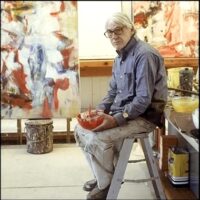“I am not an artist. I am not an
outsider. I am a citizen of the
republic and I have remained
anonymous all the time by choice.”
I Guess It Had to Happen
Julian Peters has done Poe, Rimbaud, Frost, Keats, Dylan Thomas, Wordsworth, Oscar Wilde, Villon, Yeats, Sassoon, and plenty of others — and they’re all damn well done — so why not T.S. Eliot?
‘Dear Willy’ Tells a War Tale of Love and Hope
The letters that Hollywood director William Wyler and his wife Talli wrote to each other during World War II are the basis of a new documentary directed by Taylor Alexander.
Underground Railroad: Walt Whitman Bears Witness
… to “the runaway slave” in his most famous poem, “Song of Myself,” which first appeared untitled in his self-published collection Leaves of Grass, in 1855.
One More Missive from the Department of Letters
By popular demand, here’s another letter from Nelson Algren, this time a big fat gossipy one apparently in reply to questions that Roger Groening must have posed.
Not a Bad Way to Start the Week
Cleaning out one of my desk drawers, I came across a long-forgotten file folder containing a ream of letters from Nelson Algren to Roger Groening. They are a motherlode of humor, wit, and edifying entertainment, and from time to time I will post more of his letters to Roger..
Tipped by a Friend and Glad to Know
“Thought this would give you a smile,” he wrote. “Look whose book shows up in the first pic of this article.” It appears from the photo that my biography of the Hollywood director William Wyler, “A Talent for Trouble,” turned up in the secondhand book sale of the late Robert Gottlieb’s private library.
D. H. Lawrence on the ‘Bitch-Goddess of Success’
The other day I took a drive over to Toby Pond and looked in at the house where I’d spent six months during the Covid lockdown. My favorite room there was a little library. It had two steep book-lined walls and high windows that gave plenty of light for reading. With nothing better to do, I pulled down Lady Chatterly’s Lover. Having read it many years ago, I had failed to appreciate it. This time it bowled me over. Here’s a small excerpt. It offers a taste of one of the novel’s major themes.
Leave It to Flaubert to Tell It as It Is
Three excerpts from the recently published edition of ‘The Letters of Gustave Flaubert,’ edited and translated by Francis Steegmullers, seem to me an apt commentary on our own time.
Just in Time for Independence Day
America’s top shitholer goes
whole hog at the public trough,
and never mind the rest of us,
because that is the hog’s nature. …
BEAT SCENE No. 110
Latest Issue Filled With Rich Tales
About Brion Gysin, Paul Bowles, William Burroughs, Allen Ginsberg, Neal Cassidy and Anne Murphy, Charles Bukowski, Herbert Huncke, Jack Kerouac, Gregory Corso, Ed Sanders, Tuli Kupferberg, Milton Klonsky, Alice Notley, Bernard Kops, Neeli Cherkovski, Emmett Grogan and the Diggers, Martin Bax, the influence of Gertrude Stein, the death of Joan Volmer, and more …
‘The Highest and Most Difficult Achievement of Art’
“… is not to make us laugh or cry, nor to arouse our lust or rage, but to do what nature does — that is, to set us dreaming. The most beautiful words have this quality. … They are as motionless as cliffs, stormy as the ocean, leafy, green and murmurous as forests, forlorn as the desert, blue as the sky.” — Gustave Flaubert
‘Tucked among the illustrious dead . . .’
‘… but still preposthumous, which I prefer to post mortem.’ — jh
That is Brion Gysin pictured on the cover of BEAT SCENE magazine.
Charles Plymell Takes Stage for New and Selected Poems
Plymell has as much in depth to say about death as Hemingway did and a lot more to say about it in terms of the present generation stillborn into a world that can offer nothing. — William S. Burroughs Plymell and his friends inventing the Wichita Vortex contribute to a tradition stretching back from Lamantia […]
Recalling the Fierce Beliefs of Oriana Fallaci
The widespread episodes of pro-Palestinian antisemitism on American college campuses calls to mind an old blogpost about European antisemitism.
“I find it shameful,” Fallaci begins, “that in Italy there should be a procession of individuals dressed as suicide bombers who spew vile abuse at Israel, hold up photographs of Israeli leaders on whose foreheads they have drawn the swastika, incite people to hate the Jews. …”
Over the Stage of Kansas
A Lifetime of Charles Plymell’s Inspired Poetry
UPDATED. The overwhelming number of comics, little magazines, books, posters, and all sorts of poetry and radical literature that Charles Plymell has printed during the last half-century is too many to count. All that time he was writing inspired poetry and prose of his own and having it published by a flock of small presses. Now in old age — he turns 89 today — Plymell is getting significantly renewed attention for his poetry with the release of “Over the Stage of Kansas: New & Selected Poems 1966-2023.” To celebrate the book, he will give a reading on May 18 in Hudson, New York. It’s bound to be a grand occasion.
Willem de Kooning On Escaping the Formulaic
Since today is the 120th anniversary of Willem de Kooning’s birthday, I am reminded by my staff of thousands of his fervent efforts “to break the willed articulation of the image.” Which, as it happens, is not dissimilar to the goal of the cut-up procedure in writing, intended by Brion Gysin and William Burroughs to free the mind and language itself from preconceived formulations. Nor is it a bad follow-up to yesterday’s blogpost about “Cut Up or Shut Up.”

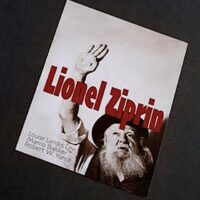

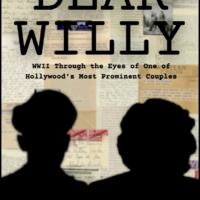
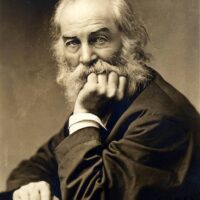


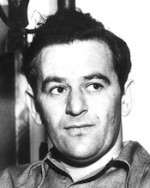
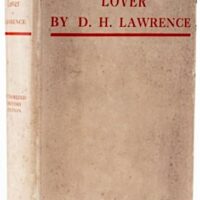
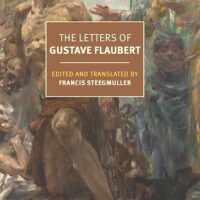


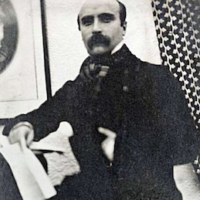
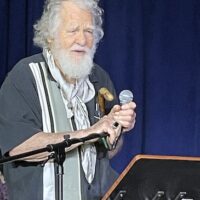

![Charles Plymell [photo by Gerard Malanga]](https://www.artsjournal.com/herman/wp/wp-content/uploads/2015/07/Charles-Plymell-photo-by-Gerard-Malanga-e1437239454525.jpg)
